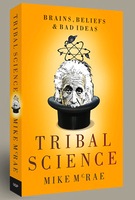 Imagine a dinner party where a guest openly admits they don’t work. On inquiry, they smile warmly and cite statistics concerning death or injury in the work place. ‘I just don’t want to risk it,’ they say.
Imagine a dinner party where a guest openly admits they don’t work. On inquiry, they smile warmly and cite statistics concerning death or injury in the work place. ‘I just don’t want to risk it,’ they say.
The next obvious question comes up; ‘So, how do you get by?’
‘Oh,’ they say, pausing to take a sip of wine. ‘Easy. You see, enough people pay taxes to provide me with welfare. I really don’t need to work.’
Everybody smiles and nods politely, believing it’s their friend’s choice to refrain from working if they don’t want to, and they move onto other topics to do with politics and religion.
Sound familiar? No? I must admit, in spite of the numerous dinner parties I’ve attended in my life, I’ve never encountered that scenario. There’s probably a simple reason for that – most people would be embarrassed to openly confess such a thing. Who would want to say to others that they’re not willing to roll the dice for themselves, but are happy to enjoy the benefits provided by the risk-taking of others? Very few would.
Yet several years ago during a lunch outing with work colleagues I had an acquaintance openly state they chose not to vaccinate their children. Why not? Simple – they cited the risks of vaccination and stated they didn’t want to take a chance on their child’s health. Unfortunately the mood of the conversation lightly condoned their choice and even congratulated them on making such a decision.
Now, I have an infant son who is of an age where he is getting his vaccinations, and I must confess I hate seeing him in pain or discomfort. The thought of him dying is the most terrifying thought I have ever had to encounter in my life – and that isn’t hyperbole. There’s only one thing worse; if his suffering was the direct result of a decision I made.
I chose to have my son vaccinated knowing he could face uncomfortable side effects. Not only did I know this from my undergraduate degree and occupational experience as a medical scientist, but my wife and I knew because we had easy access to literature and a physician who discussed the situation frankly and honestly. I understand not everybody is so fortunate, and that there are undoubtedly those in the medical profession who would avoid discussing the potential for harmful consequences, however I find my experience as a parent hard to reconcile the concerns of groups like the Australian Vaccination Network who feel a responsibility to present an emotion-laden ‘balance’ of information to the public.
This past colleague based their decision to refrain from vaccinating their children on two notions – one was that they’d read accounts of children suffering from seizures and even dying following vaccination, and the second was that they’d never heard of children dying or suffering from the conditions that they were being vaccinated against. At least, not recently. When another colleague pointed out that vaccination could well be the reason behind such an absence of modern mortality, they in response referred vaguely to statistics that indicated death rates from communicable diseases were dropping long before public vaccination programs.
This is, in a way, quite correct. Better sanitation and improved healthcare practices during the first half of the 20th century saw to a gentle decline in deaths from diseases such as measles and whooping cough in most post industrial countries like Australia. It’s difficult to tease out with a simple glance at a graph the precise impact of any public vaccination program from the impact of improved medical intervention, given we don’t have a control population where there is modern healthcare practices sans immunisation. The best we can do is to watch the statistics of health complications that arise from epidemics that occur in today’s world when public vaccination falters.
Unfortunately, there is no shortage of such natural experiments. From 1988 to 1990, for instance, California experienced an epidemic of 16 400 cases that resulted in 75 deaths. That isn’t in an impoverished, third world country without access to sanitation or medicine – that is in a modern, post-industrial nation where immunisation rates had fallen.
Nations with social health care systems like Australia haven’t been free of such outbreaks, either – in 1993, the Western Public Health Unit received 889 measles notifications for Sydney’s western suburbs. Ten percent resulted in hospital admissions, with one case of encephalitis. Fortunately no deaths occurred.
How does this compare to the risks taken from a measles vaccine? During the Measles Control Program in 1998, there were 89 reported reactions out of 1.78 million vaccinations – the same number as hospital admissions in the Sydney outbreak of only 889 cases of infection. These reported reactions included 8 reported rashes, 4 with inflammation of the parotids and one febrile seizure. No children died.
There are, of course, plenty of anecdotes to suggest horrific experiences of vaccinated infants. Seizures are certainly possible, and for me to experience such an event with my child would be unimaginable. But in a community where nobody took that risk, the dice I’d be rolling for my son would be heavily loaded. Even if each anecdote was verified, it’s hard to imagine the risks would come close to the chance of complications from contracting a disease like measles. I might not like the one in a million chance of my son having a seizure, or the slightly increased chance of death such a side effect could present, but the odds he’d face in a world with no vaccination simply wouldn’t compare.
Yet the community this colleague can happily raise their child in is not unvaccinated. Enough people roll that dice, so their children can appreciate good health in a community where pathogens have nowhere to proliferate. So long as a high enough percentage of their fellow citizens take that risk for them, they won’t have to take that tiny but real chance of suffering vaccine side effects.
I’m happy to shoulder that burden on behalf of any individual whose constitution puts them at a significantly greater risk of illness should they be vaccinated, just as I’m happy for the taxes I pay to help benefit those who are impeded from working. Yet for those who simply don’t like the idea that the demonstrably minuscule odds are too much for their child to risk, I feel no such obligation.
When it comes to most things in the community, I’m a process-driven rationalist. I support people making their own decisions regarding their own finances, health and well being, and choose to engage in outreach that assist them in making decisions that have the best chance possible of matching the outcomes they hope for. I oppose regulations that take that decision out of other’s hands and stand against the use of authority to deprive any citizen of the right to decide a course of action for him or her self. I believe in education over legislation…for most things.
Vaccination is a communal decision. While education remains a vital necessity in this regard, I also feel those who wish to rely on the risk I take to see to their child’s safety borders on criminal, and in the very least can be personally considered to be highly immoral. I struggle with the idea of legally enforcing vaccination, however find it even more difficult to welcome the choice of others to take for granted the protection my risk-taking has provided for them.
Needless to say, I don’t tend to go to many dinner parties any more. I stayed quiet during that lunch. As a relatively new father, I’m not sure if could manage such silence again in the future.

Well said, great post.
Excellent post.
Next lunch time I demand a smackdown. And full debrief 😉
[…] “I’m happy to shoulder that burden on behalf of any individual whose constitution puts them at a significantly greater risk of illness should they be vaccinated, just as I’m happy for the taxes I pay to help benefit those who are impeded from working. Yet for those who simply don’t like the idea that the demonstrably miniscule odds are too much for their child to risk, I feel no such obligation.” Read the full story […]
Have you met Storm by any chance? 🙂
I think I’ve met a number of such meteorological dinner guests in my time. 😉
Yes, well said. I completely agree.
Clear and succinct – I’ve not read this issue worded any better than what you have written.
Thank you.
Thank you, Ausduck. Most appreciated. 🙂
Very good, sir. Shared.